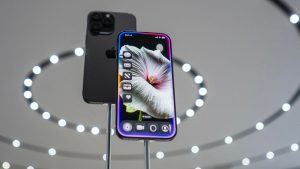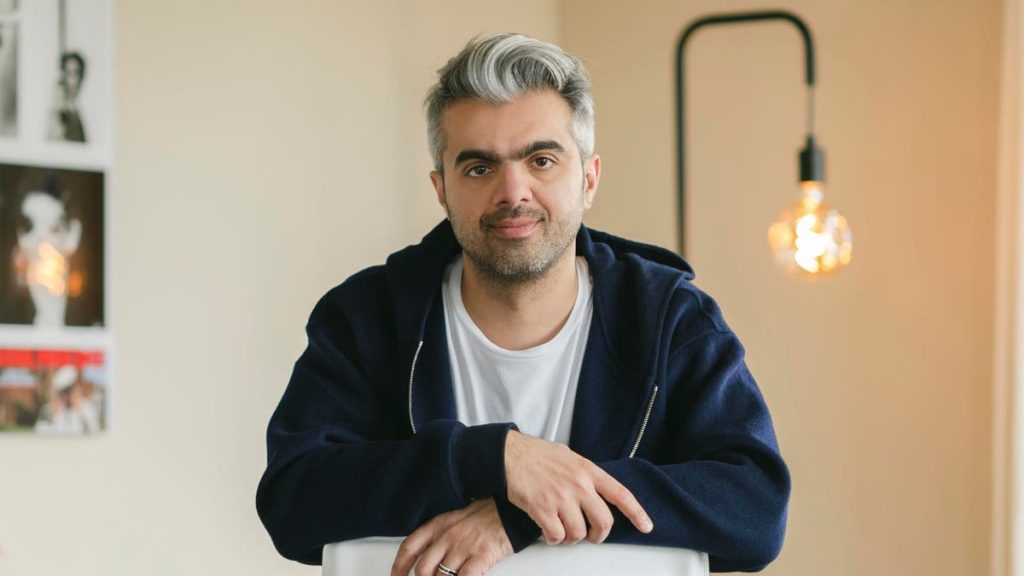Shopping is a human activity as old as civilisation itself. From the first bizaars to the modern shopping mall, shopping is a deeply human and social behavior. E-commerce came along and facilitated the buying transaction, but it also removed the social aspect of shopping with friends or family. Still, e-commerce is one the largest industries accounting for $4.11 trillion in 2023 and expected to reach $6.35 trillion by 2027, according to Statista.
A former Iraqi refugee came to the US to “flip” the e-commerce model around and return it to an inherently social act. His name is Noor Agha and he is the CEO and co-founder of the fast growing social shopping app, Flip. This founder’s journey is based on my interview with Agha.
Founded in 2019 by Jonathan Ellman and Noor Agha, the Los Angeles-based business is positioned as next-gen social and live commerce platform that combines a “TikTok-like” discovery experience with a premium e-commerce service.
“I landed in the US, August 19 2019. I started the company three months after arriving. I came to America just to launch Flip,” says Agha. When he arrived in LA, it took him just three days to get a house, a car and then begin launching the company. But the biggest challenge for Agha was getting a green card to be able to travel and work in the US. Getting the US State Department to issue a former Iraqi-born refugee a green card would typically be close to impossible.
“The foundational thing is me landing in America and filing the patent [for Flip]. That’s how I got my green card. It is not only hard, it’s next to impossible to get a working visa in the US with an Iraqi passport. My biggest question from the investor that gave me money for me to precede was, ‘Do you think you’re gonna get a visa to the US?’ That was the risk,” says Agha.
One of the first things Agha did upon landing in the US was to identify the patterns that would make the app work by connecting the product logistics to user generated content. Agha knew that previously there was no way to connect a video of someone talking on social media about a product they just bought to the person who actually bought the item. Is it an honest answer or not? To answer that question he came up with a simple, yet never-before-done shopping process.
“When you place an order on Flip. And when you go to the camera, you’re not able to open the camera on the Flip App until the product actually arrives to your home. And then you see that product automatically show up in your app without you tagging it, allowing you to it record your reactions to this product. It actually is the first content connection to the logistics of the product. So it became a social product deeply connected to the logistics of the product, “ says Agha.
This way, the content is spontaneous, created by customers excited to talk about their purchase. According to Agha, brands cannot game the content with paid influencers nor are they able to pay buyers to talk positively about the product. The key to Flip is the integrated process. Flip is both the e-commerce platform like Amazon, plus the user generated content creation, sharing and network effect of Tik-Tok. The content also mimics the wildly popular unboxing videos on social media.
“I deeply believe that in 10 years we’re not going to be sitting in front of a website with a list of pictures, and basically deciding what to buy. I believe people are going to buy through other people through the opinion of the people that purchased it before in an experience that is much more social and much less transactional,” says Agha.
Yet building critical mass for a social shopping network is no small task. So Agha started small and focused on just one shopping category—Beauty. Agha chose well as the category itself was booming just as Flip was introduced. There are endless TikTok, YouTube, Instagram, Twitter and Facebook posts by celebrities providing beauty tips. According to a 2023 report by McKinsey, the $430 billion beauty market is on an upward trajectory across all categories, fuelled by e-commerce and social selling.
“The hardest thing in the world to do is make an app ecosystem. But the staging of the supply chain definitely has made that very achievable, and we figured out that path,” says Agha who also relies on his deep experience in digital and content marketing to promote Flip app downloads.
“We spent two years perfecting the experience before we started our launch into other categories. We are now opening everything into Kitchen and Home supplies, Drinks, Electronics, and Food over the next six weeks, hopefully creating an explosion of brands and categories joining Flip, from 1,000 brands joining a month this May to a projected 2,000 in July. That’s the trajectory we’re moving towards now,” says Agha.
According to Agha, the Flip app has 2 million active users in just 18 months since the app launched in late 2021, with some users earning $5,000 per month on the platform.
As a result, the company has raised over $100 million in venture capital. Its latest Series B round for $60 million in July 2022 was led by WestCap on a valuation of over $500 million. Past lead investors for previous rounds include Streamlined Ventures and TLV Partners. Additional investors include Mubadala Capital, Ruby Lu, Human Capital, Kli Capital and others.
“We have multiple investors. What’s funny is, I’m from the Middle East. And I’m supposedly on paper, a Muslim and my first investor was an Israeli VC. A lot of my investors are from Israel as well. They got me started in the US. That literally is what’s amazing about this experience, this is why I love this country,” says Agha.
Agha also believes that the rise of generative AI and deep fakes will only make his app service more relevant. “In a world of generative AI we are very quickly getting to a point that it’s impossible to know the difference between the machine and the human. And commerce is being hacked over and over. So the humanity focus and authenticity of the Flip app user experience is what we are driving, knowing that users can find honest and authentic product feedback,” says Agha.
Born in Iraq, Agha grew up amidst the tumult of the Middle East. His family spent time in refugee camps in Yemen, Pakistan, and Jordan, forced to travel to wherever they could find food. Merely surviving was a challenge. His fortunes changed when his family landed in the United Arab Republic when Agha was 18 and he was able to attend university.
“I hustled my way into the American University of Sharjah to study software engineering because, for whatever reason, it was easy for me. And it was the one thing I could do without going to class and could work in order to support myself,” says Agha. He had wanted to study medicine because he always had this idea that becoming a doctor was the best way to get yourself out of poverty, but unfortunately it was too expensive.
“At the admission office, I was so angry that I am going to study engineering and not medicine. So I looked up, and randomly pointed at software engineering. And that’s the only reason I started software engineering. And now I am a CEO and actually run a tech team, which tells you how life works out anyways. People think it was all methodically planned, but actually the reason I started software engineering was this guesswork and landing it on software engineering,” says Agha.
After graduating, he worked for oil and gas services company Baker Hughes as a field engineer which paid well and served to raise him out of poverty. With the money he earned at Baker Hughes, he started a digital design company, then an e-commerce business, followed by an online fashion mall called Elabelz, all of which still exist today.
Agha discovered that user generated content (UGC) was very successful at helping brands grow online, which was still a novel technique in the Middle East in 2014. So to scale content creation he rented a warehouse and ran ads in Craigslist inviting people to come to the warehouse, pick a product and then talk about the product in a video.
“Flip is literally that company just combined together, because that was hacking the idea of how do you create authentic UGC content. And the key is we were just taking that content and running it as an ad to send people to our website to buy the product,” says Agha. The idea for Flip was then born when Agha had the insight to fully integrate the process into one platform.
As for the future? “Building this company is not to just do something. It is really to go all in on the belief that we’re going to change e-commerce, from this extremely lonely, disconnected experience of going through websites and adding to cart and checking out completely by yourself into a truly social activity,” concludes Agha.
Read the full article here










